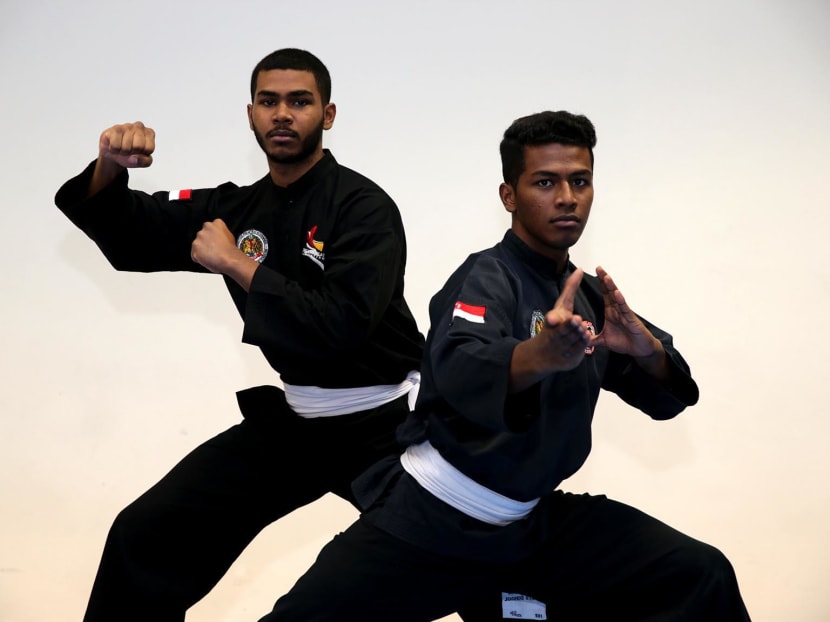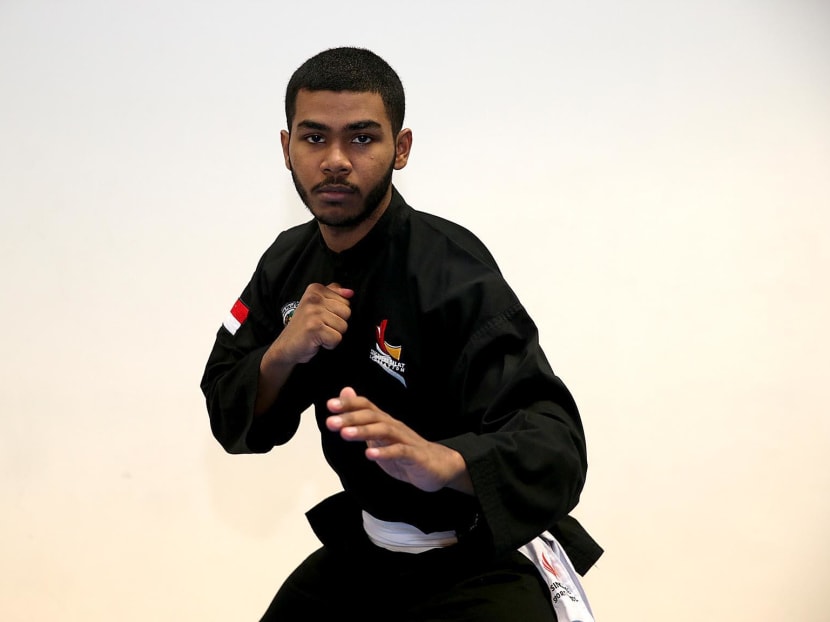Five-gold target for S’pore’s silat exponents
SINGAPORE – They had expected a clutch of gold medals from the SEA Games on home soil two years ago, but instead, Singapore’s silat exponents came away disappointed after clinching just one gold from Muhammad Nur Alfian in the men’s tanding class F (75kg).


SINGAPORE – They had expected a clutch of gold medals from the SEA Games on home soil two years ago, but instead, Singapore’s silat exponents came away disappointed after clinching just one gold from Muhammad Nur Alfian in the men’s tanding class F (75kg).
After falling short of its initial three-gold target, the Singapore Silat Federation (SSF) and its athletes will be looking to erase the hurt from the 2015 Games when they travel to Kuala Lumpur in August.
While Team Singapore has never won more than three silat golds at the regional Games – its previous best was three titles at the 2003 Games in Vietnam – SSF chief executive officer Sheik Alau’ddin has set an ambitious target of five golds this time.
Twenty titles will be at stake at the KL Games, with 10 men’s tanding classes, four women’s tanding classes and six artistic events (men’s and women’s) to be contested. While traditional silat powerhouse Indonesia, hosts Malaysia and Vietnam are expected to put in strong performances, Mr Sheik is confident that his athletes will be able to deliver a best-ever result this year.
After a good showing at the World Pencak Silat Championships in Bali last December, where the athletes won multiple gold medals for the first time in 12 years, Singapore will be looking to double world champions Shakir Juanda and Sheik Farhan Sheik Alau’ddin to shine in Malaysia.
“I’m looking at two gold medals in artistic and three in match from Farhan, Alfian, and Shakir,” said ex-national athlete Sheik, who won two world championships and four SEA Games gold during his career.
“Ferdous, Suhaila, Shafiqah and Raaziq are also dark horses so hopefully they can help us. The team will be ready despite a few athletes recovering from injuries.
“There’s still two more months so by the time they arrive in Kuala Lumpur, they will be fully ready and trying their best for the Games.”
“It will definitely be a special moment once we hit five gold. It will be history for silat as we have never won five gold medals at any competitions or championships.”
Farhan, who is the fourth of Mr Sheik’s six children, was initially not part of the 2015 squad but competed in the tanding class H (85kg) after a teammate pulled out due to injury. The silat exponent won a bronze in the event, and is gunning for gold in class J (95kg) this time.
“I’m hoping to win the gold medal, I’m a team player and everybody will also contribute,” said the 19-year-old after a training session at the OCBC Arena.
SILAT NEEDS TO CHANGE
Mr Sheik pointed to poor judging calls and refereeing decisions for a “disappointing” outing on home ground two years ago.
The sport has been plagued by a number of controversies involving refereeing decisions at the SEA Games.
In 2013, gold medal hopeful Shakir was eliminated from the match class H semi-final against Vietnam’s Li Si Kien after his opponent was not penalised for punching his face.
According to Mr Sheik, the issues had resurfaced at the 2015 Games, as he spent close to an hour protesting the judges’ scoring and decision after Muhammad Iqbal Abdul Rahman was “robbed” of gold in the men’s artistic singles.
The gold was awarded to Vietnam’s Hoang Quang Trung, while Sugianto of Indonesia and Iqbal took silver and bronze respectively.
Calling for an overhaul of the sport in his interview with TODAY this week, the silat chief is planning to put forward a proposal to the International Pencak Silat Federation to introduce an electronic competition and scoring system to improve the way silat’s tanding events are scored and officiated.
The system is modelled after taekwondo, which introduced headgear and chest guards with proximity and impact sensors, as well as footpads lined with magnets to activate sensors, at the Rio Olympic Games last year. The move was prompted by controversial decisions that occurred during the 2008 Beijing Olympics, where the analog scoring system saw referees missing out on a clear point in a quarter-final match between Britain’s Sarah Stevenson and Chen Zong (China). After a heated argument and an hour spent watching the match video, the ruling was eventually reversed.
Mr Sheik said he had engaged a company in 2014 to come up with a prototype for silat, but an initial investment of at least S$70,000 will be required for the project to take off.
He stressed that the sport needs to change if it wants to build a strong case for inclusion at the Olympics.
“Ultimately, we have to make changes for improvement,” he said.
“I’m sick and tired of all this. We have to make changes, the current scoring system is not clear cut or transparent.
“It will definitely help our chances at the Olympics if this is implemented.
“That way, everybody will be happy. The athletes train and fight, and if the system is correct, you cannot accuse the judges anymore.”





